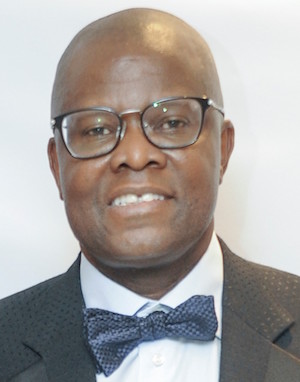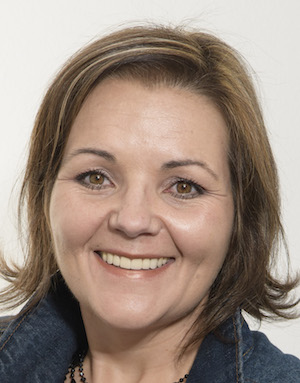It takes something really special to gain insights through research, particularly if it’s around taboo topics. Local players in a market can tap into nuances and know more about how they should be approaching respondents.
Despite local research having significant attributes that global companies cannot equal for the South African market and others in Africa, some multinationals remain blindsided by industry heavyweights.
 “They do not trust anything that is not multinational unless they are doing it for a transformation scorecard, for gain in other words,” says Sifiso Falala (left), founder of Plus 94 Research and president of the Pan African Media Research Organisation (PAMRO). Profits are absorbed from African consumption of goods and services to benefit their parent companies, he says, which are in some cases owned within the same stable of companies. “Global research is franchise-based, and like any franchise the treatment of onions, tomatoes and carrots is the same regardless of palettes,” Falala adds.
“They do not trust anything that is not multinational unless they are doing it for a transformation scorecard, for gain in other words,” says Sifiso Falala (left), founder of Plus 94 Research and president of the Pan African Media Research Organisation (PAMRO). Profits are absorbed from African consumption of goods and services to benefit their parent companies, he says, which are in some cases owned within the same stable of companies. “Global research is franchise-based, and like any franchise the treatment of onions, tomatoes and carrots is the same regardless of palettes,” Falala adds.
“In my experience multinationals prefer using global research houses that have regional offices, but that does not mean that the regional office can deliver research that is defined ‘locally’,” says Tanya van Tonder, director of Opinion Solutions. “Academic approaches and protocols will be applied locally, missing the opportunity to gather true insights. Our access, processes and people are agile to ensure the best results are gathered in dynamic and sometimes unpredictable environments, because that is where the answers lie.”
Andrea Rademeyer, CEO and founder of Ask Afrika, believes multinationals always prefer local operators for research in Africa. “Local companies are closer to the intricacies of data collection in sensitive communities. They own all the benchmarks on service excellence and iconic brands essential for competitive product positioning,” she explains.
Rademeyer says local companies get their edge from learning about global thought leadership and methodologies, while typically applying these in a customised, agile manner to local conditions and acute issues. “Local companies in some ways are faster than global ones, since they have less corporate protocol to follow,” she says.
Being able to offer a niched research solution in an area that is underserved and under-researched adds value, van Tonder reckons. “We offer a more in-depth understanding of how this market consumes products, brands and services by going directly to the market – taxi ranks, train stations, bus depots, truck stops, farms etc. Our field agents are trained to conduct interviews on formerly taboo subjects such as being HIV positive, sexually transmitted diseases, tuberculosis etc.”
Understanding social nuances
 Van Tonder (left) says a researcher needs to be locally based in order to connect with these underserved communities, by understanding where and how to find them. “We understand the cultural diversity and social nuances in the regions we operate in. There’s a trust and honesty that traditional research can’t bring on a global scale. Being local adds credibility and validity to data and expedites project roll-out.”
Van Tonder (left) says a researcher needs to be locally based in order to connect with these underserved communities, by understanding where and how to find them. “We understand the cultural diversity and social nuances in the regions we operate in. There’s a trust and honesty that traditional research can’t bring on a global scale. Being local adds credibility and validity to data and expedites project roll-out.”
However, the space in South Africa is fiercely competitive. “Many agencies compete on the processing side of questionnaires, fieldwork and data processing, and therefore essentially portray research as a commodity item,” says Falala. He describes the environment as “survivalist”, where the growth stimulus is not from conventional market research activities. “The research industry collectively is not sufficiently competitive within the business sector as research receives shameful budgets compared to other services. However, within that small fragmented pie, competition is fierce.”
Rademeyer adds that local companies need to fight harder for their clients, “by being slightly ahead of the pack on product development and service delivery – this is their main differentiator. I’ve observed that local companies are more specialised in sampling methodologies than global ones are”.
Competitive pricing
Falala says the limitation in Africa is the absence of research budgets from many target nations. “For example, you will find that some research conducted outside South Africa, say Uganda or Congo, is funded by overseas and South African businesses with very narrow local purses.”
He says local pricing is more competitive because of the capacity to control fieldwork. “We are equally competitive when it comes to online surveys. Through the African Independent Research Operators Network we still outsource significant amounts of fieldwork outside of South Africa as it is unfeasible to sustain an independent and dedicated field force in some markets.”
Speaking on diversity in the sector, Rademeyer says transformation has positively influenced the trade values of the industry. “However, trade values have dipped recently because of global activity in the top four research houses (the global gorillas) AC Nielsen, Kantar, Ipsos and GfK.
“We recruit people from SETA learnerships and reward outstanding work efforts by encouraging skills development and further studies,” van Tonder says. “I believe we do our part in contributing to transformation.”
Falala says the attitude is not healthy. “Like insurance, it is a grudge purchase. We are far from achieving the social transformation that is needed before purses can be opened for black businesses by predominantly white purse string jugglers. What is even worse is that the few black purse controllers themselves are not transformed in their minds, often falling head over heels in love with multinational agencies to the point of besotted blindness. This is stagnating real growth in the sector and compromising its reputation.”
And while research methodology has seen changes in South Africa, some existing practices are still the most effective.
“Research panels have been the love affair of the industry in recent years – and now research buyers are suffering from panel fatigue,” says Rademeyer.
Most research is still by telephone and face-to-face approaches, Falala says. However, the platforms are now tablets and computers instead of pen and paper. “Data capturing is obsolete. Completely. Panels are expensive to manage and therefore often overrated.”
Giving consumers the advantage
Technology and social media have given consumers the upper hand when it comes to how they connect and engage with products and services, says van Tonder. “Gone are the days when brands and products dictated. Loyal and endearing relationships are achieved by businesses that allow customers to feel like they have a say in the products and services they consume.”
 Van Tonder says the challenge is to connect and engage with a market in a meaningful way and to put the consumer first, “by making the communication about them and keeping it relevant to the context of their lives and how they interact with your brand and service, using multiple touchpoints.” She adds that it is not about the company.
Van Tonder says the challenge is to connect and engage with a market in a meaningful way and to put the consumer first, “by making the communication about them and keeping it relevant to the context of their lives and how they interact with your brand and service, using multiple touchpoints.” She adds that it is not about the company.
With regard to insights gained from research, Rademeyer (left) says, “When considering FMCG products, consumers are strongly focused on societal issues, culture, ethics and education. ‘Doing the right thing’ is a theme that’s top of mind for consumers and they expect this from the brands and products they consume. Once again this trend is driven by the youth who like to be informed and are concerned about society and their need to make a difference.”
Van Tonder says, “True insights are formed when we move away from being fixated on getting the big numbers to help us make decisions; it is more about the people, what similarities they share and what role your product, service or conversation plays in their life. Any good conversation starts with a question, then wait for and listen to the answer, a number can’t give you the same insight.”
Rademeyer adds, “Not only are we seeing more human-centred insight strategy, but we are also seeing a movement towards human-centred research design thinking – a framework that integrates the human perspective into all phases of the problem-solving process. Through a different approach, research can be designed in a manner that produces contextually relevant insights.”
Iza Grek is a freelance writer at A word or 2. She is editor, sub-editor, blogger and award-winning journalist based in Johannesburg. Her interests include media and advertising, personal development, psychology, lifestyle and organisational development.















